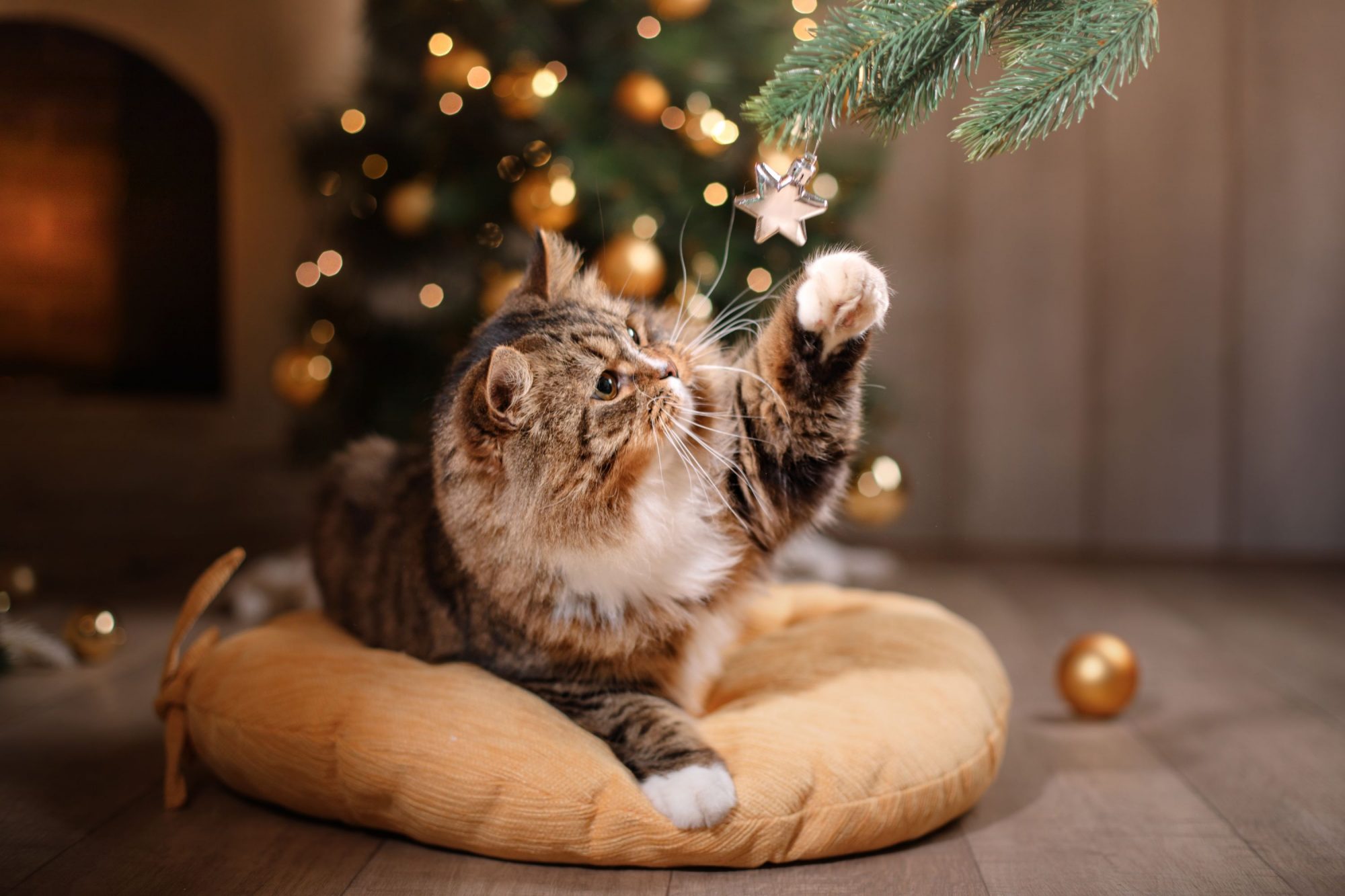Tinsel Attack: A Guide to Holiday Pet Safety

It’s the most wonderful time of the year, but unfortunately, that doesn’t mean that pet emergencies are placed on hold until the season is over. The fact is, pets get into some pretty serious predicaments around the holidays. Between changes in their routines, added foods to the table, and a departure from vigilant supervision, pet emergencies have a much higher likelihood to happen. With our guide to holiday pet safety, you can sit back, relax, and enjoy all the season has to offer with your best friend happily beside you.
Decor and More
A dressed up home is part and parcel for festive folks. Many items may escape your pet’s scrutiny, but there are definitely certain decorations that require a judicious approach. Use caution with the following:
- Glass ornaments can be easily knocked down from the tree, causing lacerations to delicate paw pads. Some pets try to sample fallen pieces and end up needing medical attention to cuts or scrapes in the mouth.
- Candles add to the ambiance, but because of their risks to pets, battery-operated candles may be a better fit.
- Tinsel, ribbons, twine, and string can be too enticing for many pets, leading to accidental choking or GI obstruction. Long pieces may have to be surgically removed.
- Snow globes must be kept on a high surface that cannot be knocked down. Many globes contain ethylene glycol, a substance known to be extremely toxic to pets.
- Fallen pine needles from the Christmas tree, garlands, or wreaths can create painful punctures to paw pads, and, if eaten, throughout the digestive system.
- Do not allow your pet to drink from the tree stand (you might want to cover it so they cannot access it). Dangerous chemicals, like fire retardant, may be leached out by the tree.
- String lights should be secured off the floor or other accessible surfaces. Some pets like to chew on cords or wires, resulting in possible electric shock. Entanglement can also occur.
- Holiday plants like poinsettia, holly, and mistletoe can be toxic. Display artificial varieties or be sure your pet cannot access real plants.
- Dry potpourri and simmering oils are threats to pet health.
Festive Foods
Who doesn’t love the indulgent treats that cover every table and countertop during the holidays? These tasty offerings add much to our delight, but the following ingredients should never be offered to pets or left out for them to surreptitiously sample:
- Alcohol
- Caffeine
- Chocolate
- Macadamia nuts
- Grapes/raisins/currants
- Xylitol (found in sugar-free baked goods, gum, or candy)
- Onion
- Garlic
- Sage
- Uncooked bread dough
Reactions vary depending on what a pet gets into, how much they consumed, and their weight. Watch your pet’s behavior closely and report any signs of vomiting, diarrhea, disorientation, lethargy, drooling, and inappetence.
Holiday Pet Safety
Whether you’re hosting guests or plan on visiting other homes with your pet in tow, be sure that they are always safe. Changes in routine can make pets anxious or fearful, and they may try to bolt through open doors or hop the fence. Be sure that your pet’s microchip information is up to date and check their collar and ID tags.
If you have any questions or concerns about holiday pet safety tactics, please call us at (916) 939‑1705.
From all of us at MarketPlace Veterinary Hospital, have a safe and happy holiday season!

